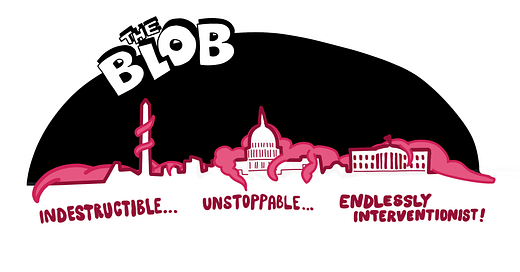America's post-war war on Afghans
Plus: Roots of Ukraine crisis discovered, Xi-Putin lovefest, 20th anniversary of Bush arms control blunder, etc.
This week New York Times reporter Christina Goldbaum, speaking on the Times podcast The Daily, described a scene she recently witnessed in Afghanistan: “Many grandmothers and mothers were holding these kids, whose mouths were craned open, who had almost pained looks on their faces, and their skin was sagging off of protruding bones. Some had become so malnourished that the skin was literally peeling off of their arms or off of their legs, because there weren’t enough vitamins in their systems to keep their skin alive.”
Afghanistan is on the verge of a humanitarian catastrophe, and the main cause is America’s commitment to humanitarian goals. Intent on pushing the Taliban to respect women’s rights and uphold other values Americans rightly cherish, the Biden administration is withholding money the Taliban wants—and one thing it wants the money for is to feed its people.
The audacity of this cruelty is astounding. It isn’t just that the Biden administration is impeding the flow of massive international aid that the Afghan economy became dependent on during the long US military occupation. Biden is even freezing financial assets that already belong to the Afghan government. Apparently he doesn’t like the fact that the Afghan government is now the Taliban. Well, a lot of people don’t. But most of them recognize that they don’t get to choose the governments of other countries.
This punishment of people we claim to want to help is a familiar story. Just ask Venezuelans, whom we’re immiserating because we think they deserve a better government. And they do. But if you think continued sanctions are likely to help them get one, take a look at Cuba—which the US has been subjecting to economic punishment for well over half a century in the hope that, any day now, one of our straws will break the camel’s back.
Economic weapons aren’t the only tools for converting good American intentions into death and sorrow. There are also regular weapons. In 2011 we bombed Libya into regime change for the sake of its people—who suffered massively from the ensuing chaos and civil war. Then, to save the Syrian people from dictatorship, we and some of our friends in the region flooded Syria with weapons, thus turning a doomed insurrection into a raging and bloody civil war that, in the end, left the dictatorship intact anyway.
Biden’s withdrawal of troops from Afghanistan this summer suggested that he had grasped one big lesson of the post-9/11 era: Invading and occupying countries is usually a bad idea, and the longer the occupation continues, the clearer that becomes.
But his handling of the Afghanistan issue since withdrawal suggests that he still doesn’t grasp a broader lesson that has been driven home repeatedly since 9/11: Coercively intervening in the internal affairs of nations for humanitarian reasons—whether the form of intervention is military or economic—tends to bring more harm than help to the humans in question.
Roots of Ukraine crisis discovered!
A friend of mine, trying to better understand the chain of events that led 100,000 Russian troops to be massed on Ukraine’s border, was exploring the archives of the New York Times when he came across an article from 1997 that begins thusly:
At night, Bruce L. Jackson is president of the US Committee to Expand NATO, giving intimate dinners for Senators and foreign officials. By day, he is director of strategic planning for Lockheed Martin Corporation, the world's biggest weapons maker.
Mr. Jackson says he keeps his two identities separate, but his company and his lobbying group are fighting the same battle. Defense contractors are acting like globe-hopping diplomats to encourage the expansion of NATO, which will create a huge market for their wares.
Billions of dollars are at stake in the next global arms bazaar: weapons sales to Central European nations invited to join the North Atlantic Treaty Organization. Admission to the Western fraternity will bring political prestige, but at a price: playing by NATO rules, which require Western weapons and equipment.
Fast forward to 1999: Bruce L. Jackson succeeded! With the support of President Clinton, Poland, Hungary, and the Czech Republic joined NATO, and NATO issued “membership action plans” to a bunch of other countries. In 2004, seven of these countries joined NATO.
Not surprisingly (at least to anyone inclined to consider the perspective of other nations), Russia wasn’t happy about the headlong expansion of NATO toward its borders. As the BBC later reported, “Russia was particularly riled by the expansion of NATO to the Baltic states, which were formerly in the USSR and viewed from Moscow as part of the ‘near abroad’.”



